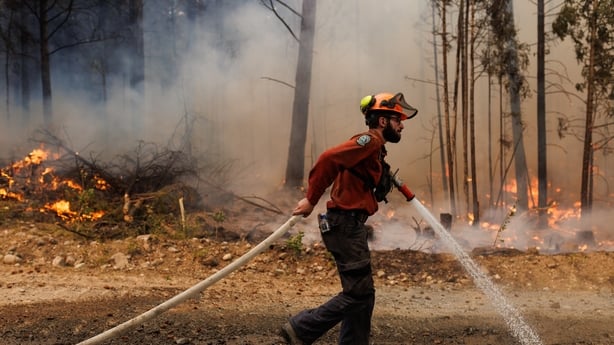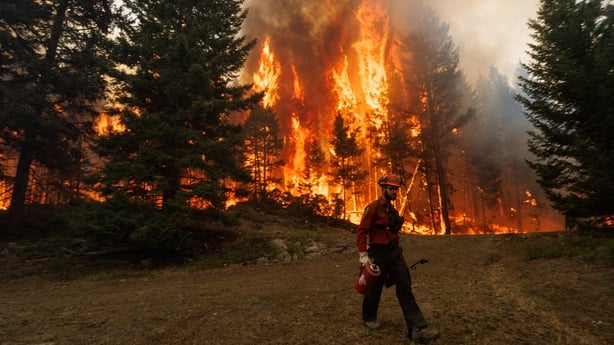A firefighter has died battling one of the massive blazes devastating Canada's forests this year, British Columbia's premier announced.
It marked the third death of a firefighter during this devastating wildfire season.
"I am devastated to learn that we have lost another wildfire fighter. My heart goes out to the family, friends and colleagues of this frontline hero," Premier David Eby said in a statement.
Mr Eby did not identify the contract firefighter, but authorities said the victim was at the Donnie Creek wildfire, near Fort St John, in the northeast of the province.
Two other firefighters have perished in separate operations this month, and a fourth person, a helicopter pilot, died on 19 July when his aircraft crashed in Alberta, in western Canada, while taking part in relief operations.
Canadian wildfires have burned some 12 million hectares (30 million acres) this year, scorching an area almost twice the size of Ireland.

"This wildfire season has been profoundly awful," Mr Eby said, who hailed firefighters as heroes making "extraordinary sacrifices ... to keep us safe".
British Columbia currently has 368 active fires. In total, more than 990 fires are ravaging Canada, 613 of which are considered out of control.
Meanwhile, an evacuation order for the town of Osoyoos and its surrounding district has been issued due to an out-of-control wildfire that has crossed the border from the US state of Washington.
The wildfire, called Eagle Bluff, is approximately 4km from Osoyoos, according to the British Columbia Wildfire Service.
It is about 200 hectares in size on the Canadian side of the border and 2,000 hectares in size on the US side, it added.

Osoyoos and the regional district of Okanagan-Similkameen issued the alert late Saturday night, citing "potential danger to life and health".
The evacuation order covers the area north of theCanada-United States border to the intersection of Highway 97and Highway 3, as well as west and north along Highway 3.(
Canada's geographic location means that it is warming faster than the rest of the planet.
In recent years it has been confronted with extreme weather events that have grown more frequent and intense by climate change.


